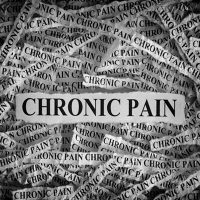Chronic Pain: A Common Point Of Disagreement In Personal Injury Cases

Pain is hard to measure, and hard to ignore. Diagnostic tests can show you the concentration of myriad types of molecules in your blood and can visualize bones and other internal tissues of the body in considerable detail, but they cannot show pain signals transmitted to and from nerves. Your words and actions can show that a certain part of your body hurts, but healthcare professionals can only rely on your own descriptions and on measurements of other medical problems to give them an idea of why it hurts or how much. Doctors and nurses frequently ask patients to rate their pain from one to ten on the pain scale, and they document these measurements in a patient’s medical records, but it is very difficult to tell if the pain that you rate as a three out of ten feels the same as the pain to which another patient assigns the same rating. If you are suffering from chronic pain because of an accidental injury, contact a Columbia personal injury lawyer.
Don’t Put It Past Defendants to Tell You That You Are Lying About Your Injuries
If you get injured in a preventable accident, you have the right to file a personal injury lawsuit against the party or parties legally responsible for the accident. In order to prevail in the lawsuit, you must prove the following claims:
- The defendant’s negligence (such as violating a traffic law or not placing a “caution” sign on a slippery floor) caused the accident
- The accident is the direct cause of your injuries
- Your injuries are the direct cause of your financial losses, including medical bills and, if you were unable to work after the accident, or are still unable to work, lost income
Therefore, defendants can win the case by casting doubt on the claims. They can argue that your injuries are not as serious as you say. They can also argue that the accident about which you are suing is not the true cause of your ill health; instead, they can blame it on anything else in your medical history that might cause the symptoms for which you have sought treatment.
Presenting Compelling Evidence About Chronic Pain
The more documentation you have, the harder it is for defendants to present an alternative story. Get examined at the emergency room right after the accident, even if you don’t think your injuries are serious. Keep a diary about your symptoms and the activities that make them worse. Even though putting on a smile and going about your day as normally as you can may help you stay physically active and socially connected, don’t post on social media about your leisure activities. You don’t want the defendant to show the jury your Facebook posts and say, “She’s too sick to work but not too sick to attend a destination wedding.”
Let Us Help You Today
The car accident lawyers at the Stanley Law Group can help you recover damages if your accident-related injuries are causing chronic pain. Contact The Stanley Law Group in Columbia, South Carolina or call (803)799-4700 for a free initial consultation.
Source:
healthline.com/health/pain-scale


